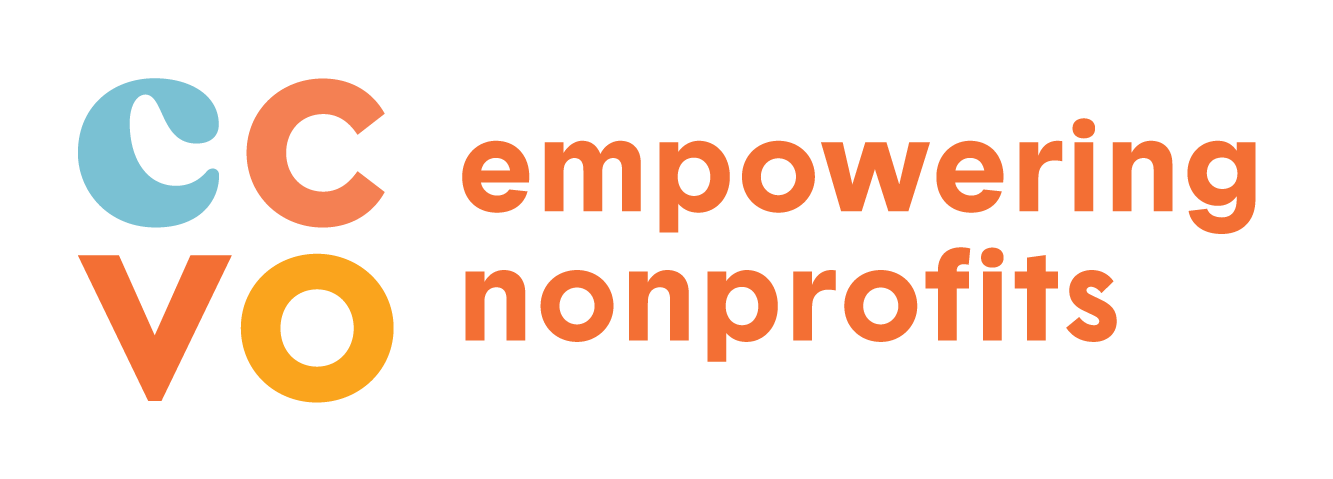Reflections on the 2019 Connections Conference
By CCVO Guest Blogger, Kelli Stevens, Suncor Energy Foundation
Beyond their formalized objectives, conferences are useful for lots of reasons: catching up with people we haven’t seen in a while, taking advantage of a change in scenery, enjoying a catered lunch, and tackling the challenge of how to get enough coffee out of the seemingly thimble-sized mugs stocked by most conference venues. But I digress.
When CCVO asked if the Suncor Energy Foundation would like to share reflections from attending this year’s Connections Conference, I offered to try and squeeze a day’s worth of learning into just a few paragraphs. It’s a tough task, because the CCVO conference tends to be full of “sparkling moments” that take participants and their thinking far beyond the conference perks I half-jokingly mentioned above. I think we’ve probably all been to conferences where the calibre of presentations, table discussions, and networking did not meet our needs or expectations – but this is not one of those conferences.
At this year’s Connections event, the hosts had not even walked onto stage and I was already over-hearing attendees talk about the learning they had taken from 2018’s conference. That’s pretty significant. After all, speakers and panelists can get people fired up on the day of an event – and sometimes that feeling will even last through the next day in the office. But to still be talking about an event’s impact one year later? Impressive.
And so far, it’s looking like a similar effect could result from Connections 2019. After my colleagues and I heard Juan Carlos Eichholz use his keynote address to describe the challenges presented by the space between two points of equilibrium – which he said is full of uncertainty, conflict, loss, and tension – some of us have been using his language in conversations we’re having about change and adaptation. I’ve also been quoting him for the last couple of weeks because of his urging organizations toward more innovative traits (experimentation, flexibility, collaboration, etc.) – while also reminding the audience that lack of rigidity does not mean lack of structure.
Shortly after Eichholz left the stage, we benefited from Todd Hirsch of ATB Financial building on the above ideas to call on Albertans to develop the discernment that’s required to balance flexibility with being “laser-focused” on goals. Hirsch spent some time discussing the need for Alberta to move forward rather than back, and he had several quotable moments here: from comparing Alberta to an angst-y teenager going through change, to describing how spiders learn to build webs in space (without gravity and also without committees!), to more seriously describing the need for economic reconciliation and a future economy that meaningfully includes Indigenous Peoples.
Later in the day, Anne McLellan added her advice to the mix, by emphasizing the need for organizations to fill gaps in the knowledge of elected officials. She drew on her experience as a former federal minister to share that lived experience needs to be considered as evidence by policy makers, who she says can usually benefit from more nuanced understandings of issues and opportunities. She pushed conference attendees to do more to provide policymakers with a better understanding of social causes.
And on that note, it’s probably worth pointing out that the Alberta election was less than a week away when CCVO held the Connections conference. So, it’s perhaps worth revisiting the importance of messages from speakers who discussed public policy and policy advocacy. In short, they all agreed this work needs to be a priority for the sector – and a collaborative priority at that. Fortunately, speakers also made clear that there are resources to draw on here. As just three examples, we can consider:
1) the lessons learned by Ontario Nonprofit Network and the experience they shared from that province’s election in 2018;
2) the chance to reflect on whether we made best use of the valuable vote kit put together by CCVO and their #nonprofitsvote campaign; and
3) the resources available from Imagine Canada that could be helpful in the lead-up to the federal election.
Beyond these points – and for the long-haul – we can return to a comment made by Eva Friesen of the Calgary Foundation, which she offered during one of the Connections panel discussions: “We are our governments. It starts with us.” Fortunately, events like CCVO’s Connections give “us” a place to exchange ideas and learn together…and they even served coffee in full-size mugs!
Kelli Stevens authored this post on behalf of the Suncor Energy Foundation, a supporter of the Calgary Chamber of Voluntary Organizations (CCVO).
photo credit: Mason Benning, Institute for Community Prosperity, Mount Royal University

